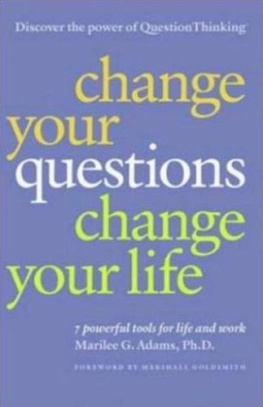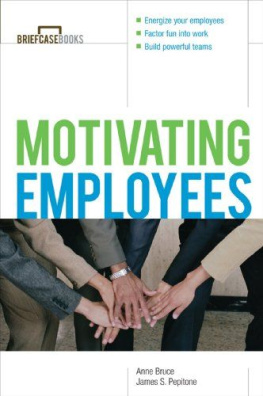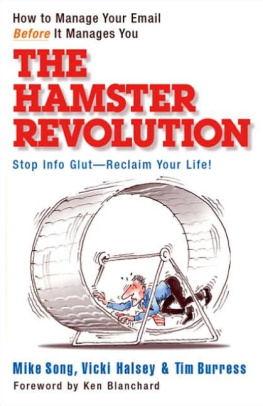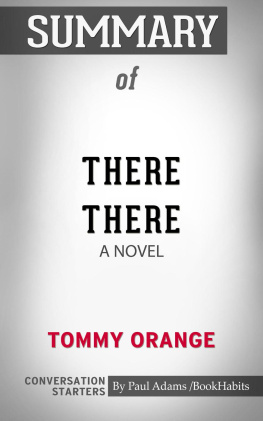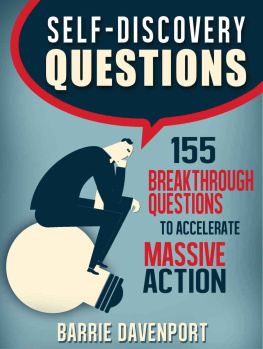Marilee G. Adams found that she could generate positive changes in her behavior and productivity by changing the defensive questions that she previously asked in the face of adversity. Analyzing those protective questions showed her that she took setbacks and criticism too personally. Asking different questions enabled her to reframe each moment and create growth opportunities. Adams illustrates the problem-solving power of honest curiosity. Her "QuestionThinking" method generates practical ways to change your mind, literally. These are great ideas; however, their repetition within a fictional storyline may annoy some readers, while others may like this allegorical approach to telling the tale. The self-questioning techniques are easy to employ, and will help you examine situations from different points of view, which can come in quite handy. getAbstract recommends adding this set of tools to your interpersonal communication toolkit.
Summary
"QuestionThinking"
Ben Knight took an executive position in a failing company that hired him to turn things around. It was a sink-or-swim situation. Within two weeks, he felt unqualified to do his job. When he offered to resign, his boss insisted that he work with an "inquiring executive coach" named Joseph. The coach introduced Ben to "QuestionThinking," a way of utilizing inquiry to understand problems better, and to formulate progressive steps toward goals. Ben felt he needed answers, but Joseph suggested that what he really needed were questions. He made Ben realize that he, like most people, responded to situations with unconscious questions and statements that affected his mood and his ability to deal with problems.
"Putting the Power of Questions to Work"
Joseph illustrated the power of changing the questions you ask yourself with an example from history. The question, "How do we get ourselves to water?" drove the ancient hunters and gatherers. The age of farming and all subsequent human progress came about because of a different question: "How do we get water to come to us?"
A world of questions is a world of possibility. Questions open our minds, connect us to each other and shake outmoded paradigms.
An event or emotion or any other stimulus that has an impact on you provokes a questioning response. Those questions can either be "Learner" questions that put you on a road to positive solutions, or "Judger" questions that help you find fault with others and lead you to stagnation. Every moment in life offers you the option to be open and inquiring, or closed and judgmental, though you rarely consciously even recognize that you are making a choice. Most people don't realize that they have any alternatives about their reactions at all.
Although we can't always choose what happens to us, we can choose what we do with what happens.
So, the first step is to be aware that you always are asking yourself questions. Next, observe the tone and intent behind your questions. Harsh questions that try to fix blame are judger questions. Those generated by genuine curiosity are learner questions. When you react strongly to something, take a moment to examine the questions you are asking yourself. This lays the necessary foundation for changing your questions.
The most effective communication is about 20% telling and 80% asking...Most of us have it turned around 80% telling and 20% asking.
Questions are a powerful way to understand others and to shine a light on the true dimensions of any situation you encounter, rather than assuming that you have all the answers. When you ask other participants questions, you encourage them to enter a dialogue with you to find the truth of a situation or to solve a problem honestly. It's a great way to encourage creative thinking.
Making Positive Choices
Consider the choice you make when you ask negative questions instead of positive, open-ended questions. This choice confronts you every moment, whether you are aware of it or not. One road leads to the "judger pit," a place of stagnation from which it is difficult to escape. Notice how burdened and stressed your body feels when you ask yourself negative, judgmental questions, such as, "How could I be so stupid?" The judger path leads you nowhere.
When we're able to listen...the impact on others is amazing. When people feel accepted, and not judged, they become much more forthcoming, cooperative and creative.
Positive, constructive questions lead you down the learner road, where you will find creative solutions to your personal and interpersonal problems. Notice your physical response to uplifting questions. When you ask yourself learner questions, your body will shift from clenched and angry to receptive and relaxed. Change the character of your internal inquiry by using your mental "switching lane" and asking yourself questions that enable you to change from a judging perspective to open-ended inquiry.
The kinds of questions we ask ourselves can stimulate curiosity, inspire us, open us to new discoveries, and move us in the direction of success or they can drive us into despair, inactivity and failure.
Imagine yourself at a crossroads in either your personal or work life. Become a dispassionate onlooker and analyze your own behavior. Note that you have an opportunity every moment to decide whether to choose your questions or to react thoughtlessly. Now, you can become aware of your choices, in an emotionally uncharged way as a disinterested onlooker. From this vantage point, you can consciously decide to change from a judgmental mode to a learning mode. Do this by asking a "switching question." For example, ask yourself whether there's a better way to view your situation. Instead of thinking, "Why is this person such a jerk?" you can "switch your question" and ask, "What is this person looking for?" When you change gears from judger to learner, the adjustment has a great byproduct: You will instantly feel calmer.
You can separate your reactions from...anyone else's (behavior). Until you do, you keep giving away your power. You're just a puppet. Anybody can pull your strings.

